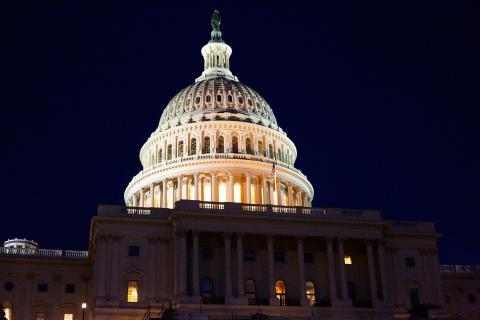It has been 3 days since US Rep. Kevin McCarthy was ousted as Speaker of the House, and the chamber still waits for a new Speaker to be elected by its members. Until this happens, the House cannot conduct most of its business.
Meaning, Congress is essentially shut down for the moment.
Regardless of how one feels about McCarthy being Speaker or his removal, the latest chapter in America’s ongoing political drama highlights just how chaotic things can get when an election system allows an extreme minority to hold the most power.
The nonpartisan reform group FairVote published a new report that looks at the electoral incentives that are driving the actions of US House members; particularly, the 8 Republicans who ousted a fellow party member from the speakership.
“Some may attribute government dysfunction to strong personalities or ideological purity. However, many scholars agree that legislators are driven by re-election prospects,” the report states.
“The circumstances under which Matt Gaetz and his flank were elected support this theory.”
The report explains that Gaetz, who introduced the motion to vacate the Speaker’s position, and the colleagues that joined him were elected in party primaries in hyper-partisan districts in which they only needed a plurality of the vote to win (i.e. more voters voted for someone else than for him).
Congressional primaries already draw a low turnout, and in many cases restrict voter access to party membership. Therefore, the voters to whom most elected officials are accountable make up a marginal percentage of their district’s population.
Take a look at some examples:
US Rep. Andy Biggs (AZ-5) was one of the 8 Republicans to vote for McCarthy’s removal. He was first elected in 2016 and won his primary with 30% of the vote. The district was so safe for his party that he won in November with 64% of the vote.
Biggs secured his victory in the primary, during which he garnered 25,240 votes in a district with nearly 800,000 residents.
Gaetz was also first elected in 2016. He won his first primary with 36% of the vote in a closed partisan election in which he garnered 35,689 votes. He went on to win the general election with 69% of the vote.
Gaetz’s district, FL-1, is unquestionably safe for his party. He only needs a fraction of the district’s 770,000 residents to secure a victory in any election, and thus only needs to appease primary voters.
FairVote’s report found that 6 of the 8 Republicans who voted against McCarthy won with less than a majority vote in their first primary, but the 2 who garnered a majority vote did not come from competitive districts. They too secured their win in low-turnout partisan primaries.
And this is what voters need to understand:
A representative’s incentive is to act in a manner they know will make primary voters happy because in most elections, the primary has the most impact on the outcome of the entire race – and if there is one thing elected officials are scared of it is being “primaried.”
Elected officials know it. The parties know it. Everyone who operates within the structure of the two-party machine knows it. They just want voters to think there's nothing wrong with it.
This does not apply only to a single side or the 8 Republicans who voted to end McCarthy’s short tenure as Speaker. Not a single Democrat wanted to go home to their district and explain to their primary voters why they voted to keep a Republican in the Speaker’s seat.
And for many of them, it was a way to stick it to Republicans.
In a system designed to divide voters between the Republican and Democratic Parties from the earliest stages of the election process, it’s all a game of who can score the most points – the most wins – and sometimes that means finding ways to take points from the “other side.”
Is this really how a democratic system should function?
Voters have consistently voiced their frustration over the lack of action and solutions coming out of Congress. Things have gotten so chaotic that the threat of a shutdown was immediately followed by the removal of the House speaker by resolution – a first in US history.
And it all comes down to elected officials acting to do what their party’s base demands, and as the party bases shrink and more voters choose to identify and register outside the GOP and Democratic Party, their actions will be ruled by an even smaller minority of voters.
There will be even less compromise between Republicans and Democrats (which is saying something). There will be more ideological extreme positions that take center stage in the halls of Congress. There will be nothing but toxic, hyper-partisan chaos.
